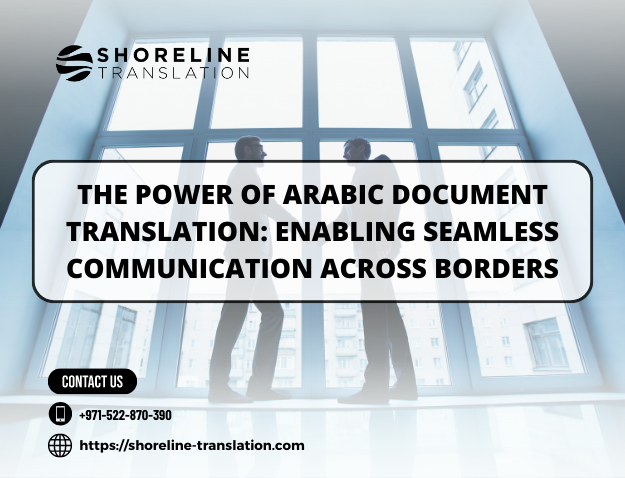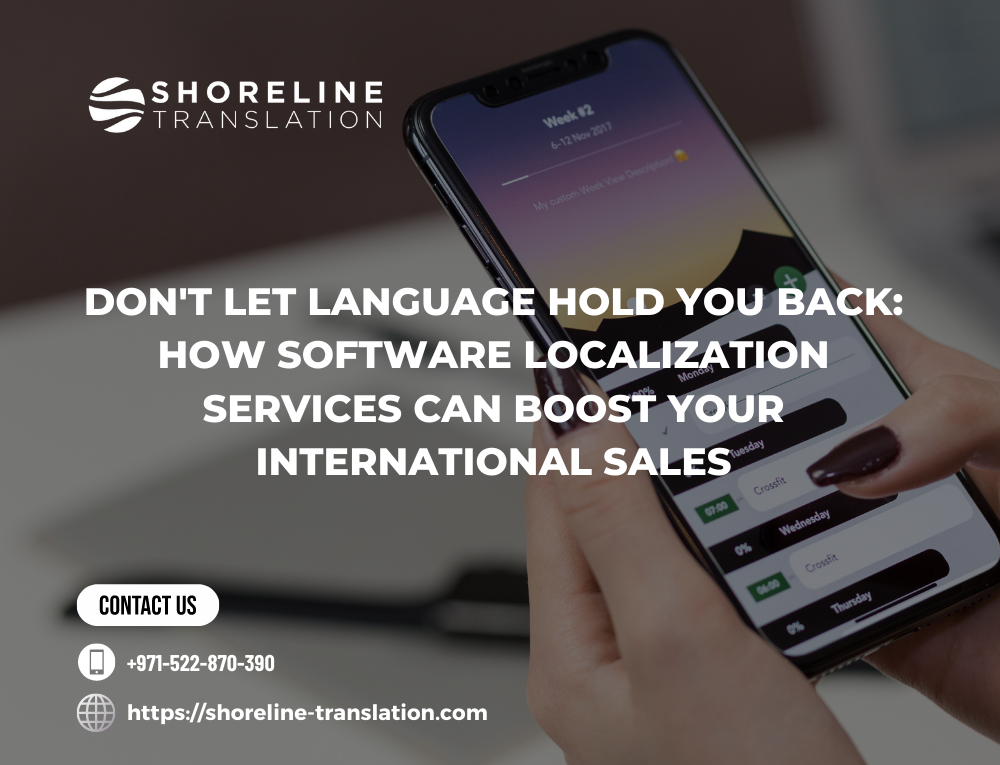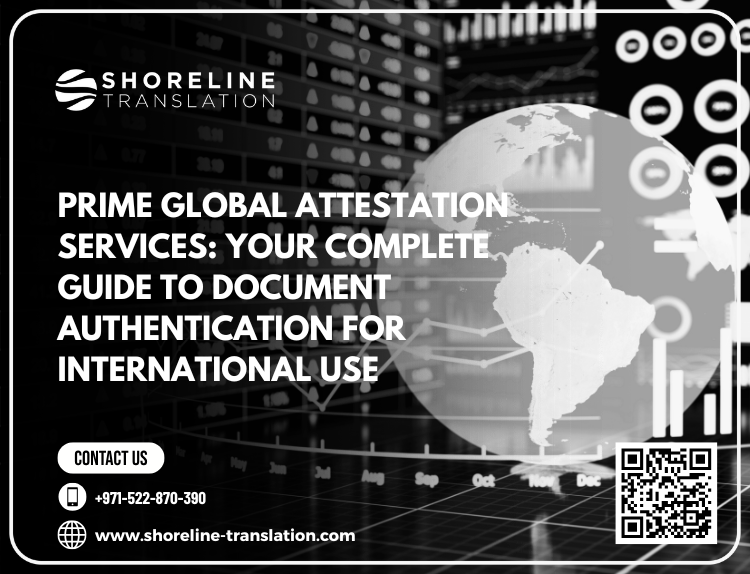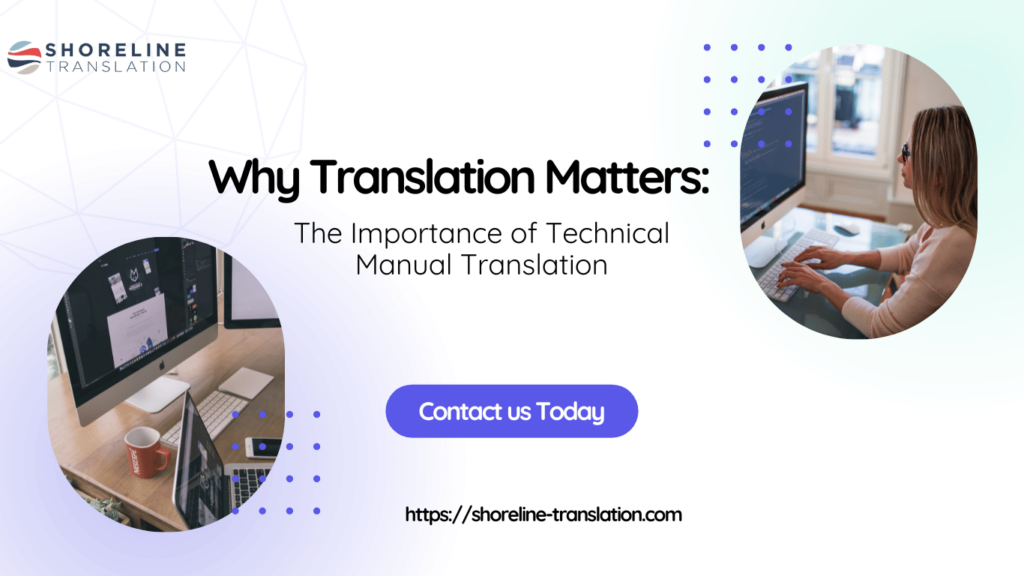Table of Contents
ToggleThe Power of Arabic Document Translation: Enabling Seamless Communication Across Borders
In a world that is constantly shrinking due to globalization, effective communication across borders has become more crucial than ever before. And when it comes to bridging language barriers, the power of Arabic document translation shines through as a game-changer. From multinational corporations expanding their reach to individuals seeking new opportunities abroad, seamless communication in Arabic opens up endless possibilities. In this blog post, we will explore how the art of Arabic document translation empowers businesses and individuals alike, breaking down barriers and unlocking a world of unprecedented connectivity. Get ready to embark on an enlightening journey into the transformative role of Arabic translation in enabling seamless communication across borders!
Arabic document translation is a powerful tool that allows individuals and businesses to communicate in a language that is widely spoken across the Middle East, North Africa, and parts of Asia. It enables organizations to effectively reach out to their target audiences in different countries, without the need for costly or time-consuming localization. This opens up new opportunities for international expansion and collaboration between companies from different cultures. Additionally, it makes it easier for people from different backgrounds to interact with each other, breaking down cultural barriers and fostering understanding between communities.
In addition to facilitating communication between individuals and businesses, Arabic document translation can also provide invaluable insight into an organization’s operations. By leveraging the expertise of experienced translators, organizations can gain valuable insights into their target markets—invaluable information that could not be obtained through any other means. Furthermore, accurate translations of marketing materials can help create engaging content with localized appeal, which could drive customer engagement and loyalty.
Ultimately, Arabic document translation is an essential tool for enabling seamless communication across borders. By facilitating clear communication between individuals and organizations from different backgrounds, this powerful tool has the potential to unlock a world of unprecedented connectivity—one where people are united by a common language and culture rather than divided by linguistic

Introduction to Arabic Document Translation
When doing business in the Middle East, it is important to be able to communicate with your partners and customers in their native language. This is where Arabic document translation comes in.
Arabic document translation is not only about translating the words on the page, but also about understanding the cultural context and specific terminology used in different fields. Our experienced Arabic translators are familiar with a wide range of topics, from oil and gas to finance and fashion.
Whether you need to translate a contract, a website or a marketing brochure, we can help you communicate effectively with your Arab partners and clients.
Benefits of Professional Arabic Document Translation Services
There are many benefits of professional Arabic document translation services. Perhaps the most important is that they can help to ensure seamless communication across borders. This is vital in today’s increasingly interconnected world, where businesses and individuals often need to communicate with those based in other countries.
Another key benefit is that professional translation services can help to ensure accuracy. This is essential when translating important documents, such as contracts or legal documents. Inaccurate translations can lead to misunderstandings or even legal problems, so it is crucial to get it right.
Professional translation services can also save you time and hassle. Trying to translate a document yourself can be time-consuming and frustrating, particularly if you are not fluent in the language yourself. Using a professional service means that you can be confident that the job will be done quickly and accurately, freeing up your time to focus on other things.
There are many good reasons to use professional Arabic document translation services. They can help to ensure seamless communication, accuracy, and efficiency, saving you time and hassle in the process.
What Industries Can Benefit from Arabic Document Translation?
As the most widely spoken language in the Middle East, Arabic is an important language for businesses to communicate with their customers and partners in the region. By partnering with a professional Arabic translation company, businesses can ensure that their documents are accurately translated and culturally appropriate.
There are a number of industries that can benefit from Arabic document translation, including:
-Technology companies looking to expand their reach in the Middle East
-Businesses seeking to establish or maintain a presence in the Arab world
-Educational institutions offering programs or courses in Arabic
-NGOs working in Arab countries or with Arab communities around the world
By investing in professional Arabic document translation services, businesses in these and other industries can overcome language barriers and better serve their customers and partners in the Arab world.
What are the Challenges of Translating Documents in Arabic?
There are several challenges that can arise when translating documents from Arabic to another language. Firstly, the Arabic alphabet has 28 letters, many of which have multiple pronunciations, which can make it difficult to produce an accurate translation. Secondly, there are a number of dialects of Arabic, which can also impact the accuracy of a translation. The grammar and sentence structure of Arabic can be very different from that of other languages, making it difficult to produce a natural-sounding translation.
In addition, there are a number of cultural nuances in the language which can be difficult to capture in a translation. Finally, there may be difficulties related to finding appropriate and accurate terminology for specialized subject areas. All of these factors make translating documents from Arabic to another language a complex and challenging task.
How to Choose a Reliable Arab Translator
When looking for a reliable translator, there are a few key qualities to keep in mind. First, look for someone who is a native speaker of Arabic. This will ensure that they have a deep understanding of the language and can convey meaning accurately. Second, look for someone with experience translating documents. This will give them the skills necessary to handle your specific needs. Make sure to communicate your expectations clearly to the translator so that they can deliver the results you need.
Finally, it’s important to find someone who is reliable and trustworthy. Ask for references or testimonials from previous clients to ensure that the translator will meet your deadlines and provide quality work. It’s also wise to look for a translator who is knowledgeable about the culture of the region you are translating for. This will help them understand context better and deliver an accurate translation. With these tips in mind, you should be able to find a reliable Arab translator with ease.
Tips for Ensuring Quality Arabic Document Translation
1. Make sure to use a reliable and professional translation service provider with extensive experience in translating Arabic documents.
2. Clearly communicate your document’s purpose and desired audience to the translation service provider beforehand.
3. Review the translated document carefully yourself or have someone else who is knowledgeable about Arabic do so, in order to check for any potential errors or inaccuracies.
4. Ask native Arabic speakers for their feedback on the translated document, in order to get another perspective on its quality.
5. Leverage a reliable, automated machine translation tool to get an initial draft of the document before having it manually translated by professionals.
6. Make sure that the translation service provider is using a qualified and experienced Arabic translator who is familiar with your document’s subject-matter.
7. Avoid using literal translations when possible, in order to ensure that the message in your document is accurately conveyed in the target language.
8. Ask the translation service provider for multiple translation samples before hiring them, in order to ensure that their quality of work meets your standards.
9. Ask the translation service provider if they offer any post-translation services such as proofreading or editing.
10. Request a Certificate of Compliance from your translation service provider, in order to prove that the translated document has been done accurately and professionally.
Shoreline for Professional Arabic Document Translation Services
When it comes to professional document translation, there is no substitute for quality. That’s why Shoreline Translation Services is proud to offer our clients the most accurate and reliable Arabic document translation services available.
Our team of experienced translators are all native speakers of Arabic, ensuring that your documents are translated with the utmost precision and fluency. We also offer a wide range of specialized Arabic document translation services, including medical and legal translation, to meet your specific needs.
In addition, we understand the importance of maintaining the confidentiality of your documents. That’s why we offer a secure online platform for submitting and tracking your translations, as well as a strict confidentiality policy to protect your information.
For the highest quality Arabic document translation services available, trust Shoreline Translation Services. Contact us today for a free quote!
FAQ About Arabic Document Translation Services
As the world becomes increasingly globalized, the need for accurate and reliable Arabic document translation services is on the rise. Whether you’re a business looking to expand into new markets or an individual seeking to communicate with loved ones in another country, having access to quality translation services can make all the difference.
To help you better understand the process of Arabic document translation and what to expect from a reputable service provider, we’ve compiled a list of frequently asked questions. Read on to learn more about how Arabic document translation can benefit you and your business.
1. What types of documents can be translated into Arabic?
Almost any type of document can be translated into Arabic, including corporate reports, marketing materials, legal documents, contracts, financial statements, manuals, website content, and more. No matter what your specific needs are, there’s a good chance that a professional translation service can accommodate them.
2. How long does it take to translate a document into Arabic?
The amount of time it takes to translate a document varies depending on its length and complexity. A standard page of text usually takes about 1-2 hours to translate, but longer or more technical documents may take longer. In most cases, you can expect to receive your translated document within 1-2 weeks after placing your order.
3. How much does it cost to translate a document into Arabic?
Again, the price will vary depending on the length and complexity of your document as well as the type of translation service you choose. Professional translators typically charge by the word or page, with rates ranging from $0.10 to $0.25 per word or from $30 to $100 per page.
4. Are there any special considerations when it comes to translating Arabic documents?
Yes, there are several things to consider when translating documents into Arabic, such as dialect and cultural differences. It’s important to choose a translator who is familiar with both the source language and the country where your document will be used, as this will ensure accuracy and readability. Additionally, it’s important to make sure that your translator is experienced in working with specialized subjects, such as legal texts or technical manuals.
5. What happens if I’m not satisfied with my translated document?
If you’re not satisfied with the quality of your translated document, contact your translation service provider right away so that they can assist you in resolving any issues or concerns that you may have. Many companies offer a satisfaction guarantee on their services so that clients can feel confident about their investments.
Conclusion
The power of Arabic document translation is clear. By enabling seamless communication across borders, it has the potential to open up new opportunities for business collaboration and cultural exchange. It can also increase understanding between cultures by providing an accurate representation of text and ideas in their original language. As technology continues to advance, so too does our ability to communicate across languages with greater ease and accuracy. Document translation services will continue to play a critical role in bridging the gap between different countries and cultures around the world.
Arabic document translation is also a valuable tool for preserving cultural heritage. By ensuring that important documents are accurately translated, we can ensure that the knowledge and values of past generations remain accessible and can be passed on to new generations.
Finally, by making translated Arabic documents available more widely, it will help to break down language barriers and promote greater understanding between countries. It will also enable individuals to access information in their native language without having to rely on translations from third-party sources. This is particularly important in contexts where the original version may not be available or accessible. In this way, Arabic document translation has the potential to play an invaluable role in creating greater mutual understanding and collaboration between cultures around the world.





